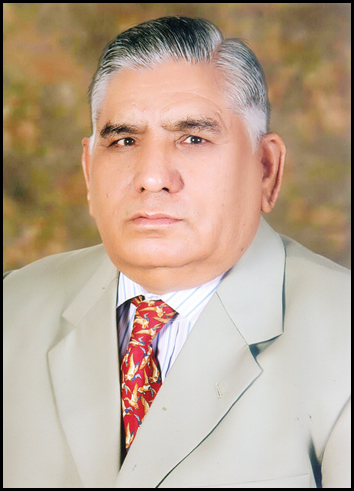
Shaukat Ali Jawaid
The leadership of the Pakistan Society of Internal Medicine deserves commendation for inviting and honoring one of its own colleagues, Prof. Ejaz Ahmad Vohra, as the chief guest at its recent international medical conference held in Islamabad. In his address, Prof. Vohra emphasized the need for revising the medical education curriculum to better train doctors for local conditions, enabling them to serve the local population rather than immigrating to Western countries.
The disease patterns, prevailing conditions, and primary healthcare setups in Pakistan differ significantly from those in Western countries. Unfortunately, medical students in Pakistan are often not exposed to the realities they will face post-graduation, nor do they visit communities to understand these conditions. The leadership of the medical profession must address this issue. Instead of aligning the curriculum to compete with the West and producing cheap labor for developed countries, we should focus on training doctors who will stay and serve in Pakistan.
Prof. Vohra’s address echoed ideas from Thalia Arawi and colleagues, published in the AMA Journal of Ethics.1 They advocate for the decolonization of health professions curricula, highlighting that wars and conflicts are prevalent in many Global South countries. These regions face high rates of infectious diseases, population displacement due to conflicts, food and water shortages, and widespread mental health issues such as anxiety and PTSD. We in Pakistan are facing terrorist activities for the last many years and incidents still take place in the province of KPK and Baluchistan. Keeping in view all this, the Healthcare professionals must be trained to develop intervention strategies for these scenarios, including working in conflict zones.
For example, the MENA region has experienced three decades of conflicts and wars, often under the guise of democratization, but primarily aimed at controlling oil reserves. The ongoing war in Syria has displaced millions. In Palestine, Israeli forces have killed over thirty-eight thousand people, including women and children, with healthcare professionals among the casualties. The United States has consistently vetoed UN resolutions to stop this aggression. Similarly, wars in Iraq and Lebanon, and the Indian forces’ actions in Kashmir, have resulted in massive casualties and displacement. These conflicts have profound health consequences and hinder prospects for global peace.
Countries in conflict zones face issues such as population congestion and poor sanitation, which lead to numerous diseases. The Muslim world must train healthcare professionals equipped to handle these situations, necessitating a drastic change in medical education curricula. Will the leadership of the medical profession seriously consider decolonizing medical education and health services instead of conforming to Western standards? As Arawi and colleagues note, “post-colonial thinking still governs health professions school’s curriculum.” It is imperative for medical leaders to break free from this mental slavery.
Reports indicate that many healthcare professionals in the West have either left the profession or are contemplating doing so post-COVID-19 pandemic.
This exodus has created job opportunities that are being filled by healthcare professionals from low- and middle-income countries (LMICs). However, these professionals often find it challenging to survive on current salary structures due to inflation. It is time to stop measuring our success by the number of physicians who secure jobs in developed countries. Authorities must create opportunities within Pakistan to retain these professionals. Health planners need to conduct thorough assessments and devise strategies to meet our healthcare needs while providing growth opportunities for healthcare professionals, allowing them to live decent and comfortable lives.
Reference
- Arawi T, Abu-Sittah GS, Hassan B. Everyone Is Harmed When Clinicians Aren’t Prepared. AMA J Ethics. 2022;24(6):E489-E494. doi: 10.1001/amajethics.2022.489
https://journalofethics.ama-assn.org/article/everyone-harmed-when-clinicians-arent-prepared/2022-06 (Accessed on May 18th 2024)



